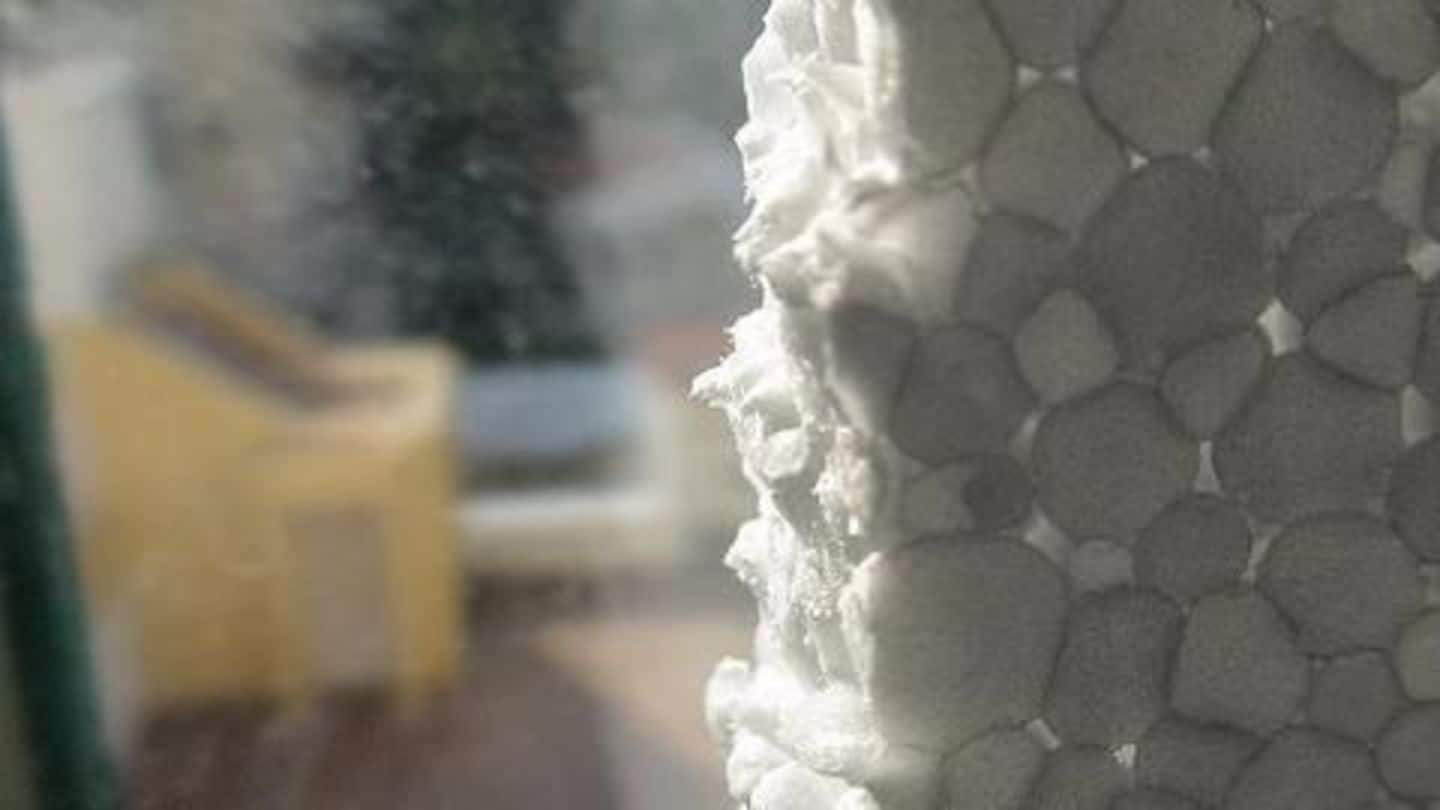
#Fail: Wind destroys TN ministers thermocol experiment to save water
What's the story
Tamil Nadu is in the grip of a severe drought. While urgent solutions are required to mitigate the effects of the same, the urgency acquired a whole new dimension when Tamil Nadu co-operative minister Sellur Raju tried to float thermocol in the Vaigai reservoir.
The bizarre idea was intended to prevent loss of water from evaporation and obviously met with failure.
Let's know more!
Details
How was the experiment conducted?
The experiment conducted 67 km away from Madurai, intended to cover the entire water surface with taped thermocol pieces.
While the minister initially placed the sheets on the surface standing knee-deep in water, a coracle was employed to place them in deep waters.
Creating a spectacle for journalists and officials invited to witness the technique, all attempts were defeated by strong winds.
Do you know?
Use of thermocol in reducing evaporation from water bodies
Evaporation is known to aggravate water scarcity. Moreover, floating thermocol on water surface to prevent evaporation is a legitimate method, which has been recommended for save water from farm ponds. The experiment probably resulted in failure due to the large surface area of the reservoir.
Reactions
How did the officials react to the failure?
Raju noted the ministry had allocated Rs.10 lakh to experiment on methods that may help prevent water evaporation.
"Such methods have been used in foreign countries", he claimed following the failure of the experiment.
"We would be carrying out several methods like thermocol sheets, placing plastic balls and plastic plates to reduce evaporation on a trial basis," added district collector, K Veera Raghava Rao.
Analysis
Larger issues
There are many innovative solutions to address various environmental challenges including climate change. The failure of the experiment demonstrates, such solutions, be it transitioning to renewables or preventing evaporation - they need to be examined in the context of local adaptability.
Moreover, this points to the need to scrutinize and set standards in what kind of projects qualify to be funded by taxpayers' money.
Information
Environmental impact
A non-biodegradable material, thermocol breaks apart into small globules that fish or birds may consume, mistaking it for food. Experts argue that the thermocol could further cause damage to the river bed and aquatic life.